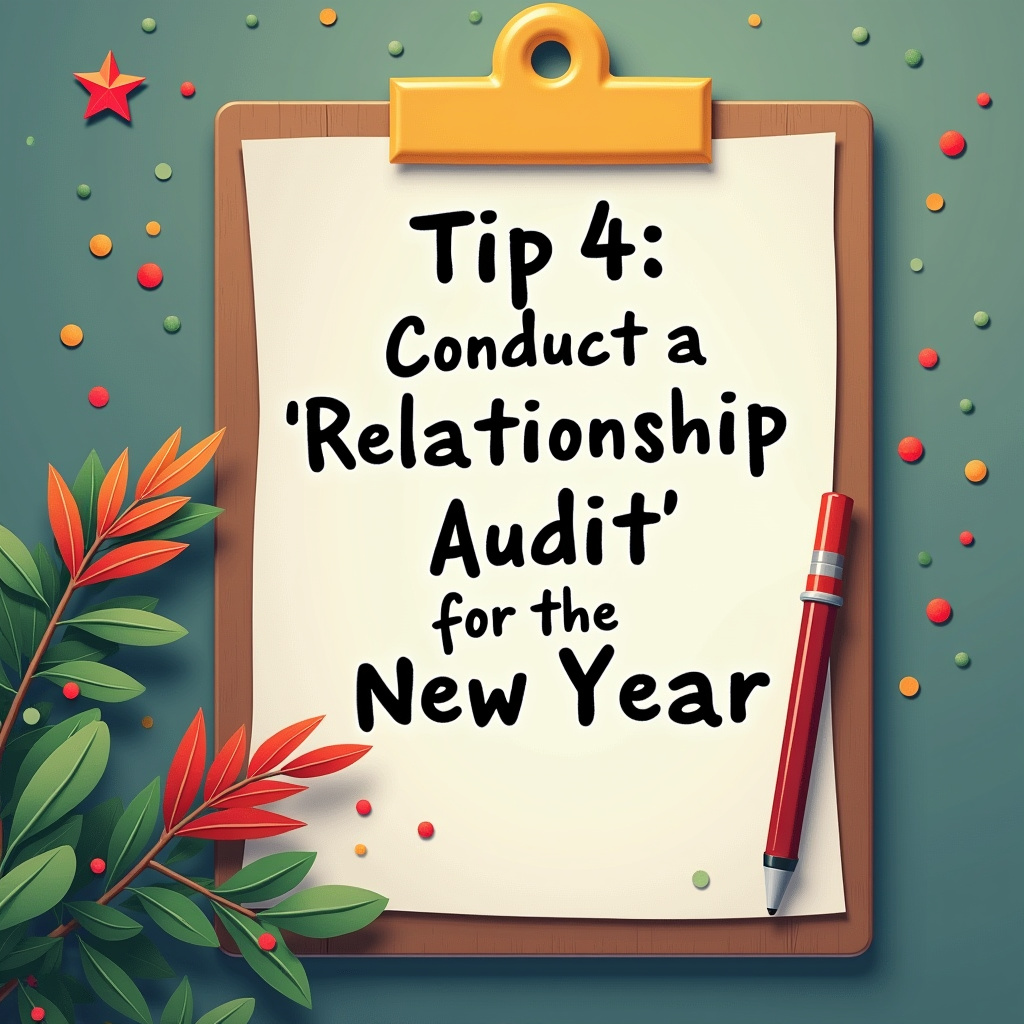4 Pro Tips: How to Navigate Holiday Stress Better
The holiday season, often touted as a time of joy and connection, frequently brings an unwelcome guest: stress. Between financial pressures, packed social calendars, and heightened expectations, maintaining harmony in personal relationships can feel like an Olympic sport. Navigating these pressures effectively is crucial, making sound holiday relationship advice essential for a peaceful season. This article delivers four professional, actionable tips designed to help you manage the inevitable turbulence and foster stronger connections, even when the pressure is mounting.
Tip 1: Implement the "15-Minute Connection Check-In"
One of the first casualties of holiday chaos is quality time. When schedules become overbooked, genuine connection fades, often leading partners to feel isolated. This quick, dedicated time slot helps counteract that drift.
Why It Works
Scheduled, focused time signals to your partner that they are a priority, regardless of external chaos. It prevents small resentments from festering into larger issues, especially important when dealing with external stressors like family obligations.
How to Implement It
Commit to a non-negotiable 15-minute window daily—perhaps right after the kids are asleep or before you check evening emails. During this time, all devices must be silenced and put away. The rule is simple: listen actively without offering solutions unless explicitly asked. Use open-ended prompts like, "What was the most challenging part of your day?" or "What are you looking forward to tomorrow?"
Expected Results or Benefits
You create a predictable oasis of calm. This habit directly addresses the signs your partner is pulling away by ensuring consistent emotional proximity, even when physical time is scarce.
Pro Tip: The "High/Low/Buffalo"
To deepen the check-in, try this variation: Share your High point of the day, your Low point, and a "Buffalo"—something completely random or funny that happened. This keeps the conversation light while ensuring emotional depth.

Tip 2: Establish "Boundary Scripts" for In-Law Interactions
Family dynamics are a major source of seasonal tension. Unchecked expectations or poorly managed visits can severely strain partnerships. Proactively preparing for these interactions is key to managing in-law relationship stress.
Why It Works
Ambiguity invites conflict. When you and your partner know exactly how you plan to respond to potentially intrusive questions or unwanted suggestions from relatives, you present a united front, reducing friction between you two.
How to Implement It
Schedule a 30-minute strategy session before the in-laws arrive or the big holiday party. Agree on 2-3 "hot button" topics (e.g., career changes, future plans, parenting styles). Develop polite, pre-rehearsed exit lines or deflection phrases.
Example Scripts:
- For intrusive questions: "That’s a great question, but we’re actually focusing on [Topic X] right now."
- For unwanted advice: "We appreciate your perspective, and we’ve got a solid plan in place."
Expected Results or Benefits
This provides immediate relief during tense moments. By removing the need to improvise under pressure, you reinforce effective communication in marriage by showing solidarity, shifting the focus from internal conflict to external management.
Tip 3: Decouple Presence from Productivity During Shared Downtime

The holidays often involve shared time off work, but this time can easily become filled with chores, errands, or passive scrolling side-by-side. To truly recharge and connect, you must intentionally disconnect from the grind. This is vital for staying connected during stressful work periods that bleed into vacation time.
Why It Works
When downtime is spent tackling the to-do list or consuming separate media, partners feel less like companions and more like roommates sharing a task list. Intentional "unproductive" time restores emotional energy.
How to Implement It
Designate specific blocks of time (e.g., Saturday afternoon) as "Sacred Unscheduled Time." During this block, the goal is shared, low-stakes activity that requires mutual focus but low commitment.
Actionable Ideas:
- Work through a simple jigsaw puzzle together.
- Bake a complex recipe where you both must participate.
- Take a 30-minute walk where talking about logistics (bills, future plans) is banned.
Expected Results or Benefits
You rebuild shared positive memories and reduce the mental load associated with constant "doing." This simple shift transforms passive coexistence into active partnership, which is excellent holiday relationship advice for couples used to relying on constant activity.
Tip 4: Conduct a "Relationship Audit" for the New Year (Pro-Level)
The end of the year is the perfect time to look forward, not just backward. This proactive audit prevents relationship stagnation and helps set positive momentum for the coming year. This is powerful dating advice for the new year, whether you’ve been married 20 years or dating for two months.

Why It Works
Relationships require maintenance, not just crisis management. By formally auditing satisfaction levels, you address minor issues before they become major threats to intimacy and connection.
How to Implement It
Use a simple 1-10 scale to rate your satisfaction in key areas (e.g., Intimacy, Shared Fun, Financial Alignment, Emotional Support). This numerical data removes defensiveness; it’s just data, not an attack.
The Follow-Up:
For any area rated below a 7, brainstorm one concrete action you will both take in Q1 to move that score up. For example, if Intimacy is a 5, the action might be: "Schedule one date night per month with a no-phones rule."
Expected Results or Benefits
This structured reflection ensures your relationship evolves intentionally. It moves the conversation beyond immediate holiday complaints to long-term shared vision, strengthening commitment and mutual understanding.
Conclusion: From Surviving to Thriving
Navigating the holiday season doesn't have to mean merely surviving until January 1st. By implementing these four professional strategies—the 15-Minute Check-In, Boundary Scripts, Intentional Unproductivity, and the New Year Audit—you are actively investing in your relationship's resilience.
Start small. Choose one quick-win tip (like the 15-Minute Check-In) to implement immediately tonight. Consistency, even in small doses, provides the greatest return on investment. When you manage external stressors with internal structure and effective communication in marriage, the holidays become a time for genuine reconnection, rather than just obligation.



